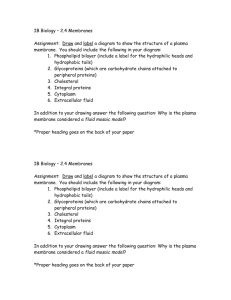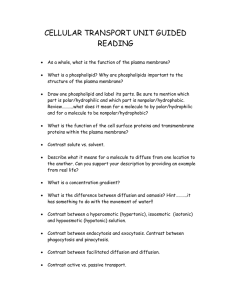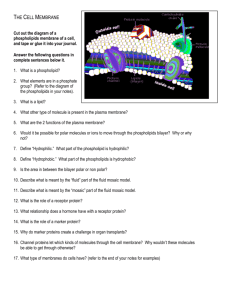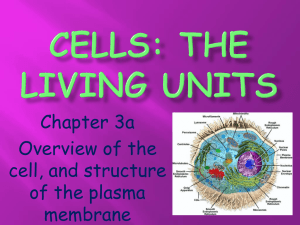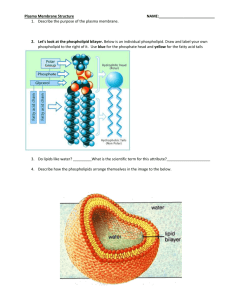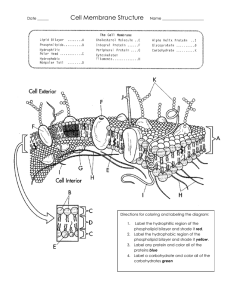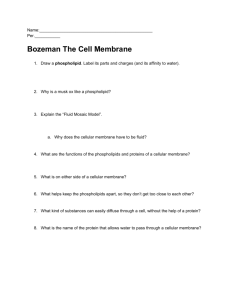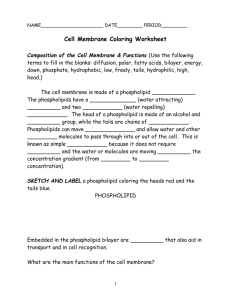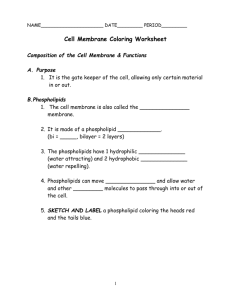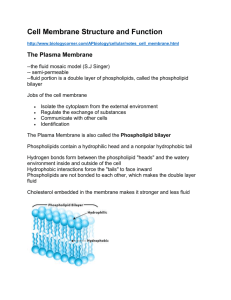On the back of it draw and label the phospholipid
advertisement
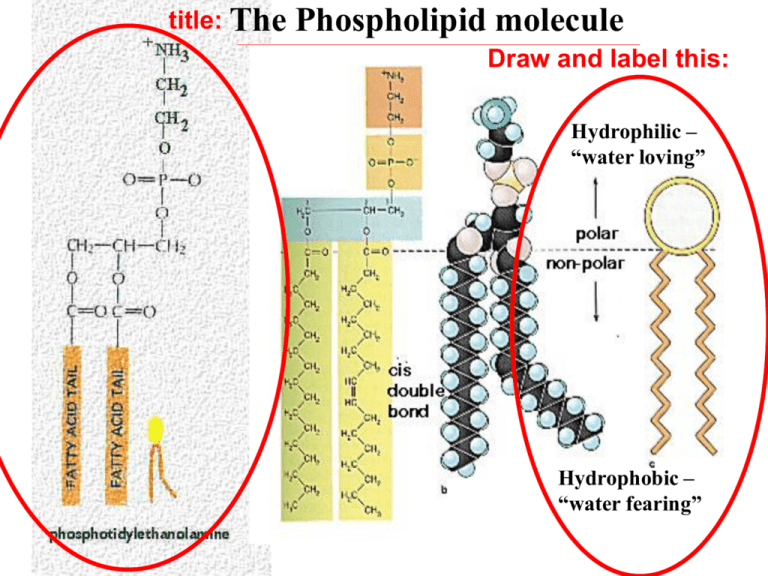
title: The Phospholipid molecule Draw and label this: Hydrophilic – “water loving” Hydrophobic – “water fearing” The cell membrane is a phospholipid bilayer - this means that there are two rows of phospholipid molecules with the fatty acid tails in the middle making it nonpolar. The phosphate based heads are on the inner and outer sides of the membrane where polar water molecules can interact with the cell membrane. Membranes are vital because they separate the cell from the outside world. They also separate compartments inside the Plasma Membrane nonpolar Extracellular fluid Cytosol – just the fluid in the cell Cytoplasm – the fluid and organelles inside the cell The plasma membrane serves as the interface between the machinery in the interior of the cell and the extracellular fluid (ECF) that bathes all cells. The lipids in the plasma membrane are chiefly phospholipids like phosphatidyl ehtanolamine and cholesterol. Phospholipids are have a non-polar hydrocarbon tail of the molecule that is hydrophobic There is a polar head that is hydrophilic. As the plasma membrane faces watery solutions on both sides, its phospholipids accommodate this by forming a phospholipid bilayer with the hydrophobic tails facing each other. Phospholipid bilayer:
